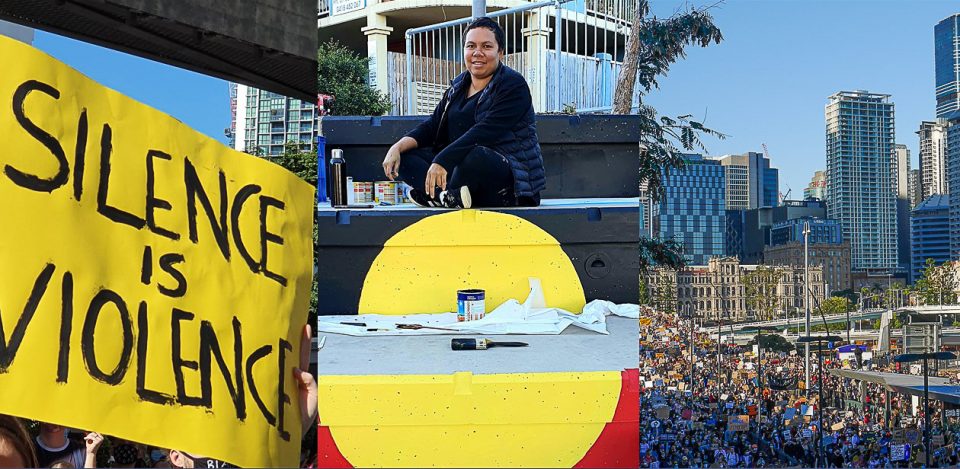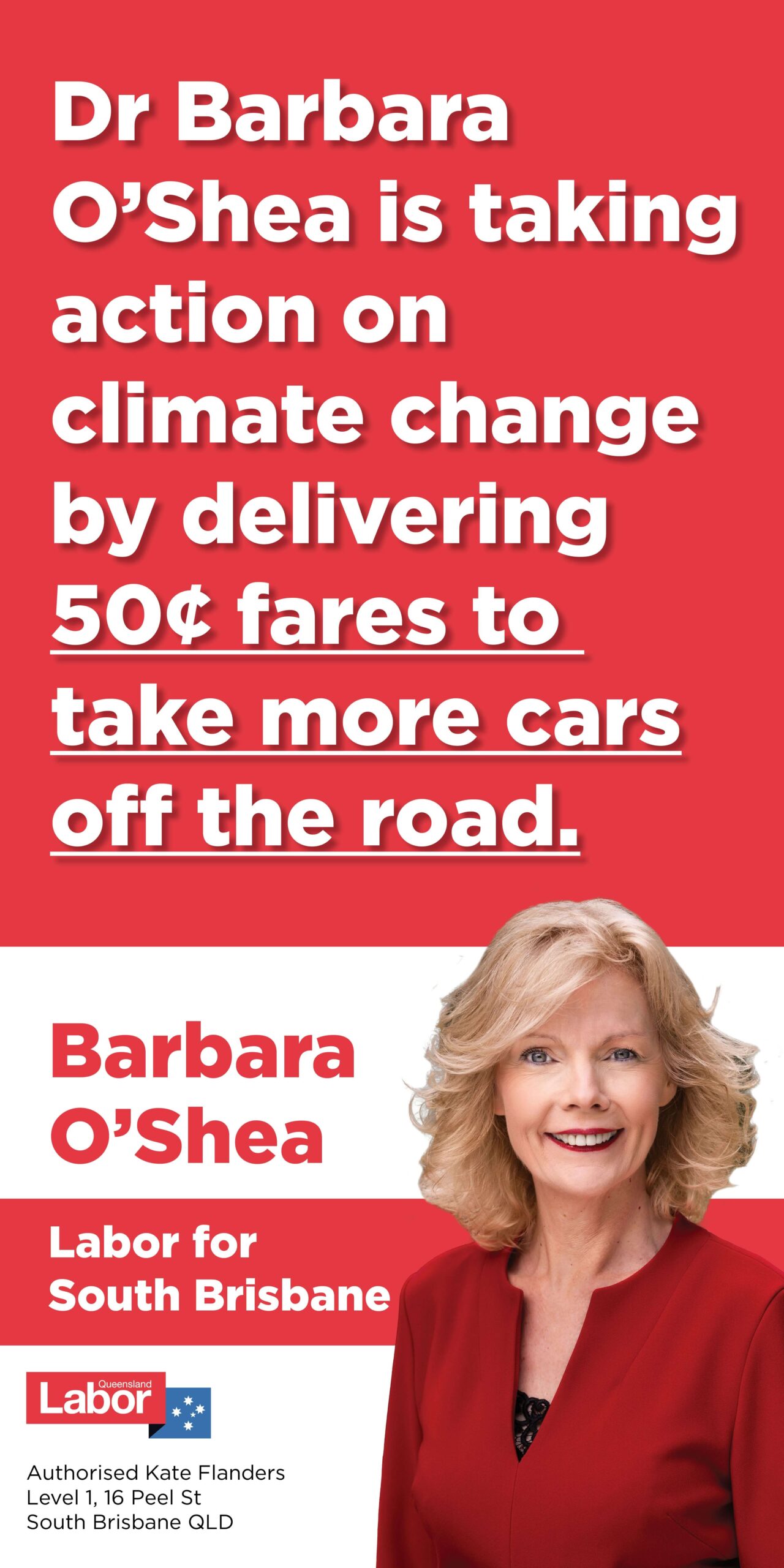Calls for prison abolition and defunding police are not new but have come to the fore recently following the murder of George Floyd Jr in the US and the reinvigoration of the Black Lives Matter (BLM) movement globally.
In July, people flocked to Brisbane’s BLM rally, held at the height of the COVID pandemic, in what was one of the largest marches the city has seen. They were protesting the 432 Aboriginal and Torres Strait Islander deaths in custody in Australia since the 1991 Royal Commission into Aboriginal Deaths in Custody. And, as there have been in the US, there were calls to defund police and abolish prisons.
These are ideas that people often find difficult to grasp, confronting even, but should they be?
Boneta-Marie Mabo, artist, prison abolitionist, granddaughter of Eddie Mabo, and worker at Sisters Inside, talked me through the issues.
“I think it’s really difficult for people to think about prison abolition because we’ve been socialised and conditioned to believe that it’s the only option for people who do wrong or do bad.”
“So, the first part, I guess, when we think about Abolition, is changing how we think. And that’s very hard to do, especially when we’re just given the one option.”
Boneta-Marie says the most marginalised people in our communities make up the bulk of the prison population and people are being punished for being poor or mentally ill.
“They’re coming from poverty. They’re self-medicating. There are so many other social issues that are bound with those. If we were to address the social issues that affect most of the people that are being incarcerated and criminalised, there would be no need for prisons.”
Boneta-Marie said people always ask, “but what about rapists or serial killers”, but, she says, they do not make up the majority of prisoners.
“It goes back to how we treat people. Working with young people is so important because if they feel complete, included and valued in their community, there’s no way that they’re going to do anything that’s going to jeopardise that.”
But “If you feel loved, it’s easier to give love.”
Prison industrial complex
Prison abolition, Boneta-Marie says, is about removing or breaking down the prison industrial complex (PIC). The idea of the prison industrial complex describes the overlapping interests of governments, the police and the private corporations that profit from running prisons.
“Prisons don’t just operate by themselves. They are not just a standalone thing. You’ve got the people that work in the prisons, and the security guards, police, the courts, the lawyers … there’s an economy that revolves around the whole system.”
Abolition is the vision that there are workable and enduring alternatives to policing, punishment, and prisons.
“Abolition sounds very hard, and very far away, but prior to colonisation, 230 years ago, we had no prisons on this continent at all. So, it can be done. My people lived very successfully and harmoniously and did not need prisons. So, it’s not something that is so hard to fathom for me.”
Part of the vision for abolitionists Boneta-Marie says is to work towards creating a society that moves from a focus on punishment to one that supports and nurtures the most vulnerable.
What’s harmful about prisons?
“We talk about them as rehabilitation centres, as correction facilities designed to change the behaviours of people to make them better for society. But the prison itself is a violent place. It’s a violent system.”
“How are people going to be ‘corrected’ or how are they going to be better off when it’s actually about power and control and not about support? If prisoners have no options, they have nothing, there is nothing for them, how will they do better? They’re being put away, hidden from society. If we made people feel more included, and more valued in our society, there would be no need for places like that.”
Until recently, in Western Australia, people could be sent to prison just for defaulting on fines. Debbie Kilroy and Sisters Inside joined the campaign to stop imprisonment for unpaid fines and established a fundraising campaign to help keep Indigenous women out of jail, by paying their fines.
“That’s what the campaign was about: to make sure that people and especially Aboriginal people weren’t dying because of unpaid fines – being put in a system where they would eventually die.”
Creating change
Boneta-Marie worries that the energy that we saw in Brisbane in July for Black Lives Matters has not been sustained.
“We’re still dying in custody, still dying in prisons.”
In September, Aunty Sherry Tilberoo was found dead in her cell at the Brisbane Watch House.
“I think people are actively trying to be anti-racist, a lot more than they were before, which is great. And that’s what I think has definitely come out of the Black Lives Matter movement. What saddens me though, is that there has to be a trend for it to get any kind of traction, or for it to start happening. It did start something, and it has done great things, but I feel like it’s kind of fizzled out.”
Boneta-Marie says that change starts with each individual.
“I was born to a white mother, who said racist things, who’s done racist things, who was silent at times when she needed to speak up for me. And she birthed me, and she loves me. So, I know that the best of you can have the best of intentions.”
“When we think about prison abolition, we think about it outside of who we are. We have to be conscious of how we think and learn new ways of doing things, like not calling the cops and thinking of other ways to protect our communities.”
Boneta-Marie says a world without prisons, would be more respectful.
“It’s important to share and to talk and instil that into young people. So that the next generation of people teach their children.”
Boneta-Marie says the process of Abolition will start incrementally as it has in Western Australia, where people are no longer being put in prison for defaulting on fines.
“The destination is prison abolition, but the journey is decarceration. It’s a journey, it’s not just about physically getting people out of prison, it’s about changing the way we think about things. And if we can’t change that, if we’re stuck in the thinking that prisons are the only option, then nothing will ever change.”
Notes:
The Sydney Morning Herald reported in June 2020 that:
“While the general population was imprisoned in the March 2020 quarter at a rate of 220.7 people per 100,000, the state’s Aboriginal population was imprisoned at a rate of 2427.4 per 100,000.”
Learn More
On Monday 9 November Boe Spearim and Karina Hogan of 98.9FM Indigenous Radio broadcast their “Let’s Talk” program live from Bunyapa Park for NAIDOC 2020. Boneta-Marie Mabo joined them along with Tricia Stroud and Troy Brady to talk about the NAIDOC theme, ‘Always Was Always Will Be’. Listen here https://989fm.com.au/listen/programs/lets-talk/naidoc-live-broadcast-2/
See also, Imagining abolition: Thinking outside the prison bars by Debbie Kilroy.


